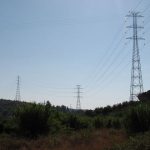KKR agrees swap with Mediobanca to buy 19.9% of Greenvolt
The Lisbon-based special purpose investment vehicle GVK Omega created by the fund KKR to acquire Greenvolt and take it off the stock market, has instructed Mediobanca to buy shares in the renewables company for up to €8.3 per share.
GVK Omega, a SPV, which was created by the US fund Gamma Lux, which in turn is held by US fund Kohlberg, Kravis Roberts (KKR) informed the Portuguese securities market regulator CMVM on Friday that it had agreed on the ‘swaps’.
A share swap is the exchange of one equity-based asset for another and is often associated with the payment for a merger or acquisition. A share swap occurs when shareholders’ ownership of the target company’s shares is exchanged for shares of the acquiring company. During a share swap, each company’s shares must be accurately valued in order to determine a fair swap ratio between the two shares. A set number of shares of one company are swapped with the shares of another as a way of covering costs.
Through a total return equity swap, Mediobanca will acquire the Greenvolt shares for a price that should not exceed €8.30, as the predefined offset for a Public Acquisition Offer in a friendly acquisition agreed by the shareholders for 60.86% of the green energy company’s capital.
Gamma Lux, which is based in Luxembourg, and managed by KKR, formally launched the takeover for all of Greenvolt’s shares in mid-December.
Greenvolt – Energias Renováveis S.A is now one of the largest renewables companies in Europe in the development of large-scale wind and solar farm projects, and is currently listed on the Lisbon Euronext stock market.
It was founded by João Manso Neto, the former CEO of EDP Renovavéis, in 2021and currently its shares are worth €8.30 per share.
It has three sub-companies – Greenvolt Biomass (it is a market leader in Portugal and has a presence in the UK), Greenvolt Power – one of the largest companies in Europe in developing large-scale solar and wind energy projects, and Greenvolt Next, which focuses on decentralised energy production.
A decentralised energy system is characterised by locating of energy production facilities closer to the site of energy consumption, popular in terms of solar panels on urban buildings in city districts or solar parks near rural communities; allowing for more optimal use of renewable energy as well as combined heat and power, reduces fossil fuel use and increases eco-efficiency.










